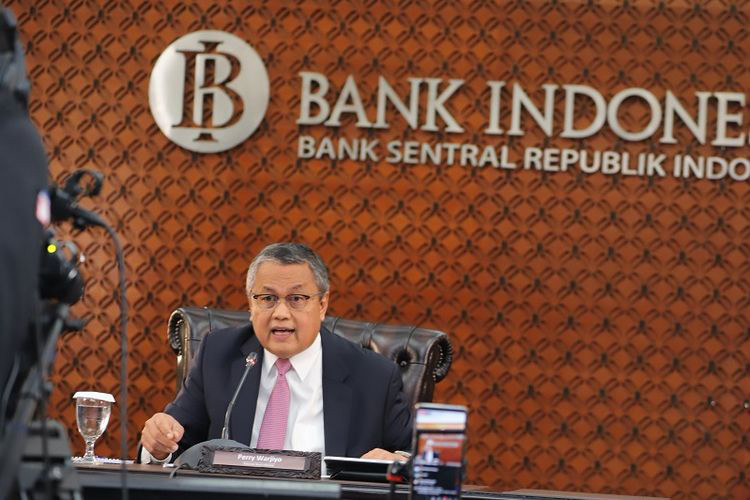
BI sees rupiah strengthening to pre-pandemic level as it intervenes in market
by Adrian Wail AkhlasBank Indonesia (BI) has injected an additional Rp 167.6 trillion (US$11.33 billion) this month to stabilize the currency and financial system, projecting the rupiah to strengthen to pre-pandemic levels.
BI Governor Perry Warjiyo said on Wednesday that the central bank aimed to provide liquidity in banks and the money market, as well as stabilize the rupiah.
The rupiah, which in March weakened to the lowest since 1998 amid massive capital outflows, has been relatively steady this month. The currency traded at 14,690 per US dollar as of 3 p.m., a 6 percent depreciation year-on-year.
“We maintain our view that the rupiah remains fundamentally undervalued and will strengthen [to the pre-coronavirus level] to reflect its fundamentals”, Perry told reporters in a streamed news conference.
The central bank now expects the currency to further gain against the greenback to levels around Rp 13,600 to Rp 13,800 per US dollar. It decided to hold its benchmark interest rate last week at 4.5 percent to maintain financial market stability.
BI recorded a net outflow of $5.7 billion in the first quarter as foreign investors dumped Indonesian assets. From April 1 to May 14, however, the central bank booked $4.1 billion in net inflows, mainly in sovereign debt papers.
BI had injected a total of Rp 583.5 trillion since the beginning of the year to conduct monetary operations to stabilize the rupiah, Perry said.
“The central bank has loosened liquidity in the financial system in a bid to support the economic recovery, together with the government’s stimulus and credit restructuring by the Financial Services Authority,” he added.
BI freed up Rp 117.8 trillion of banks’ liquidity earlier this month by lowering the reserve requirement ratio and revoking banks’ obligation to fulfil the intermediary macroprudential ratio (RIM). It injected an additional Rp 49.9 trillion in liquidity through repurchase agreements (repo) with banks and foreign exchange swaps.
The COVID-19 pandemic is threatening the stability of Indonesia’s financial system, as it weakens the country’s financial industry and macroeconomic outlook, as well as bring economic activity to a standstill, the Financial System Stability Committee (KSSK) said earlier this month.
Economists have warned that nationwide loan restructuring programs and economic risks caused by the pandemic may tighten liquidity in several small banks and lead to higher non-performing loan ratios in the medium term, leaving banks in need of additional liquidity.
Perry said domestic banks owned Rp 886 trillion in government bonds and could transact Rp 563.6 trillion with the central bank should they ever need additional liquidity due to credit restructuring.
The central bank has also bought Rp 23.98 trillion worth of government bonds in the primary market, the central bank’s governor said, amid rising bond supply as the government plans to widen the budget deficit to 6.27 percent this year.
Indonesia expects to raise Rp 989 trillion from bonds and loans in the remainder of 2020 to fund its swelling budget deficit, said the Finance Ministry’s financing and risk management director general, Luky Alfirman.
BI may buy another Rp 350 trillion to 400 trillion worth of government bonds before the end of the year, doubling the central bank’s holdings of such debt, according to an estimate by Goldman Sachs as reported by Bloomberg.
If you want to help in the fight against COVID-19, we have compiled an up-to-date list of community initiatives designed to aid medical workers and low-income people in this article. Link: [UPDATED] Anti-COVID-19 initiatives: Helping Indonesia fight the outbreak